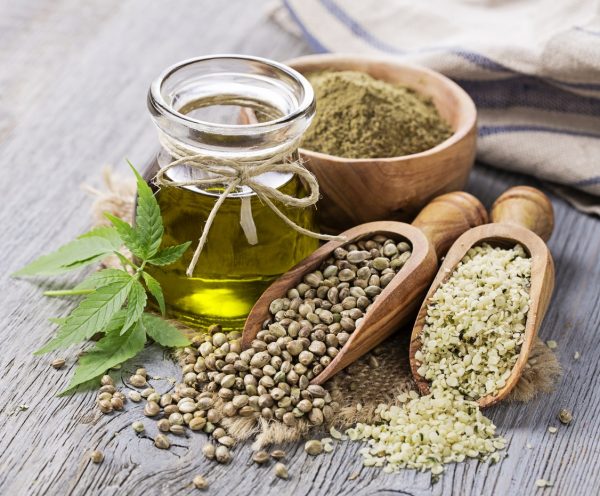Hemp industry is poised for growth but regulatory uncertainties remain

By Ken Roseboro
Published: October 2, 2019
Category: The Organic & Non-GMO Report Newsletter, Hemp News
Industrial hemp has great potential as a food and fiber crop in the United States but regulatory issues remain uncertain and need clarification. This was a key message at educational sessions on hemp at the Organic Trade Association’s Bold Ideas + Critical Conversations conference.
Need to know state regulations of hemp
Rend Al-Mondhiry, senior counsel at the law firm of Amin Talati Upadhye, emphasized that even though the 2018 Farm Bill approved the production of hemp, individual states still have to approve production.
“There is still misinformation about if the Farm Bill approved hemp in all 50 states. You need to know the regulation of hemp in each state. Some states such as South Dakota and Idaho continue to regulate hemp like marijuana.”
The current regulation of hemp, established by the 2014 Farm Bill, allows states to establish research programs for hemp production and marketing.
Al-Mondhiry also said the Farm Bill doesn’t change the U.S. Food and Drug Administration’s regulation of cannabidiol or CBD oil, which is seeing tremendous market growth as a natural remedy for pain, anxiety, and other ailments. The FDA approved CBD as a drug, and it cannot be added to dietary supplements, though that may change.
“The FDA is looking at allowing CBD in foods and supplements,” Al-Mondhiry said. “They are trying to figure out how much can be added that is safe. There is a lot of certainty now but it should be clear in the next year.”
For companies wanting to enter the hemp market, Al-Mondhiry said: “Know there are risks. There are regulatory uncertainties now, a lot of gray areas and nuances, and these will continue. If you are risk intolerant, (hemp) may not the best area to enter.”
Farmers can get hemp certified organic, according to Peter Nell, government affairs manager at CCOF, an organic certifier.
“You can certify hemp and hemp products as organic,” he said.
But hemp must also be grown according to state rules establishing research programs for hemp.
Nell recommends that farmers and processors check with their organic certifiers about resources on hemp and to see if their state has a hemp research program.
“Confusion and chaos going on”
The theme of regulatory uncertainty was repeated at another OTA conference session on growing hemp.
Kristen Adams, organic specialist with MOSA (Midwest Organic Services Association), said the 2018 Farm Bill extends the current regulation of hemp for another year while the U.S. Department of Agriculture creates new regulations.
In the meantime, Adams said: “There is confusion and chaos going on. We’ve got a lot of work to do. The new rules should come out this November.”
Regarding organic certification of hemp, Adams said farmers and processors must first be in compliance with their state (hemp) research programs. Then, their organic certifier can verify their organic practices.
Michael Bowman, founding chair of the National Hemp Association, is optimistic that clarity will come to the hemp regulatory landscape.
“In 2020, we will have federal standards, and the industry will become unshackled.”
Steven Hoffman, managing director of Compass Natural, said hemp is “probably the hottest thing since vitamin C” and the interest in hemp is on “hyper drive.”
“We are seeing amazing interest from farmers all over the U.S.,” Hoffman said.
Hoffman said there is “Money chasing this industry. It is coming in.”
But Adams cautions: “We need regulation.”




